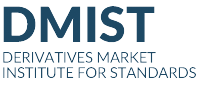Cleared derivatives markets have gone through a lot in the last three years – from the operational disruptions caused by a global pandemic, to energy supply shocks caused by the war in Ukraine. And through it all, market infrastructure held up well and proved its resilience.
However, insiders admit there have been signs of stress over the past few years that show a need for proactive measures to ensure that markets can rise to the occasion the next time a crisis hits. And those measures begin with the infrastructure underpinning the industry.
"There is no doubt that our markets are resilient and held up well under enormous challenges over the past few years. However, a closer look does point to long-standing bottlenecks in the trading and clearing infrastructure. And as trading volumes continue to rise with each year, it's incumbent upon all of us to ensure we create the best foundation to support this growth," said FIA President and CEO Walt Lukken.
'An honest look at how to improve'
According to industry data, record volumes in March 2020 led to 15 times more contracts not allocated on trade date because of bottlenecks in the settlement and clearing process. Similar frictions also emerged in 2022, in the wake of the Russian invasion of Ukraine and related market volatility.
Non-allocated trades and backlogs are bad for everyone in the marketplace. They require firms to allocate extra resources to manual reconciliation precisely when organizations need people elsewhere in a time of stress. They create risk for the brokers who carry the trades as well as additional costs via margin posted on those unsettled trades. And the challenges only snowball as firms looking to dig out from yesterday's trades see their stresses multiply when volatility continues.
"March 2020 was an inflection point. It made us look long and hard at how futures clearing works, and with renewed energy look to remove friction and increase straight-through processing. Getting more trades in the right account at the right time for our clients has so many benefits for all parties involved," said Gary Saunders, global head of prime derivatives services at Barclays, said in a November press release published by FIA.
The settlement risks and operational friction that market participants endure are real. However, the challenge isn't identifying these sources of friction, but rather plotting the way forward – with consensus, clear buy-in and a will to maintain standards for the good of the disparate stakeholders involved.
"Proposing standardized timeframes for the different steps involved in the allocation process is, in our view, a reasonable first measure. We believe that such timeframes are an important first step to identify areas for process improvement and will consequently foster further development of standardized IT-based solutions that will mitigate operational risks and increase efficiency across the industry," said Jens Janka, a member of the executive board at Eurex Clearing.
DMIST and the 30/30/30 standard
In 2022, FIA formally launched the Derivatives Market Institute for Standards, Inc.—or DMIST—to provide a structure for this important work. An industry-governed standards body, DMIST was built to provide a consensus and collaboration framework for defining, adopting, housing and overseeing common behaviors, workflows, and processes in the trade and clearing lifecycle for the benefit of all sectors of and participants in the exchange traded and cleared derivatives industry.
In November DMIST proposed its first formal standard aimed at improving the processing of certain types of transactions in the exchange-traded derivatives markets. The proposed standard applies to the processing of give-ups and allocations. It aims to establish timeframes for completing actions on these transactions, so as to reduce end-of-day bottlenecks and the number of transactions that need manual processing.
The development of this standard is the first step towards achieving a long-term objective of moving the industry closer to real-time processing. Standards published by DMIST will aim to improve the efficiency and resilience of the clearing ecosystem and will be technology- and vendor-agnostic.
- DMIST has identified three activities impacting the timeliness of give-ups:
- Clients not providing allocation instructions to their executing brokers in a timely manner
- Executing brokers not alleging the allocated trades to clearing brokers in a timely manner
- Clearing brokers not accepting allocations in a timely manner with corresponding timely booking into client end accounts
DMIST is proposing that each client, executing broker, and clearing broker should submit and process their give-up and allocation messages within 30 minutes of the relevant event that triggers their action.
DMIST believes that this 30/30/30 standard will reduce end-of-day bottlenecks, reduce manual processing, and improve the overall customer experience.
"Operating orderly, efficient and transparent markets has always been a core part of our business and we were pleased to work with our peers in the industry to bring these critical changes forward. The protocol proposed is an important step in further standardizing the post-trade process and will allow new operational efficiencies benefiting all market participants," said Chris Edmonds, chief development officer at Intercontinental Exchange:
The proposed standard is an important milestone, however, industry insiders are quick to point out it is only the beginning of the work that lies ahead. While 30 minutes is definitely an improvement over settlement delays that could last a few days, the ultimate goal is to move to real-time settlement to more fully address the risks, costs and inefficiencies in the trading lifecycle.
"Time is risk, and risk has real costs for everyone in the system. Moving to near real-time settlement is the ultimate goal, but it's important to walk before we run. The 30/30/30 standard is an important first step in what we hope is a multiyear journey for DMIST and the industry to develop consensus-driven standards that will guide the modernization of our market infrastructure and settlement processes that will support many more years of success for our markets," said Don Byron, FIA's head of global industry operations and execution.
More online For more information on participating in DMIST or to learn more about the standard, please visit FIA.org/DMIST.org



